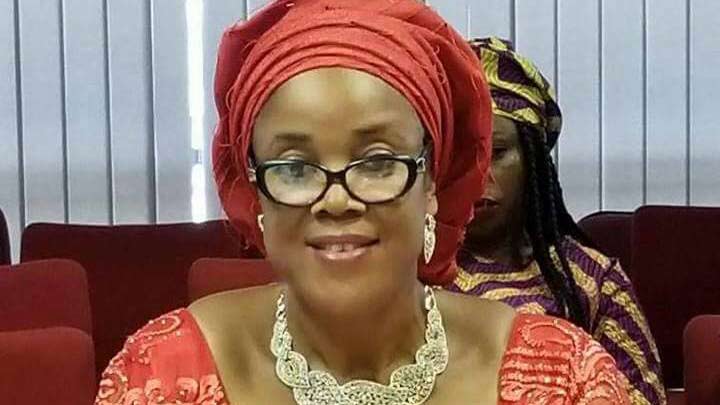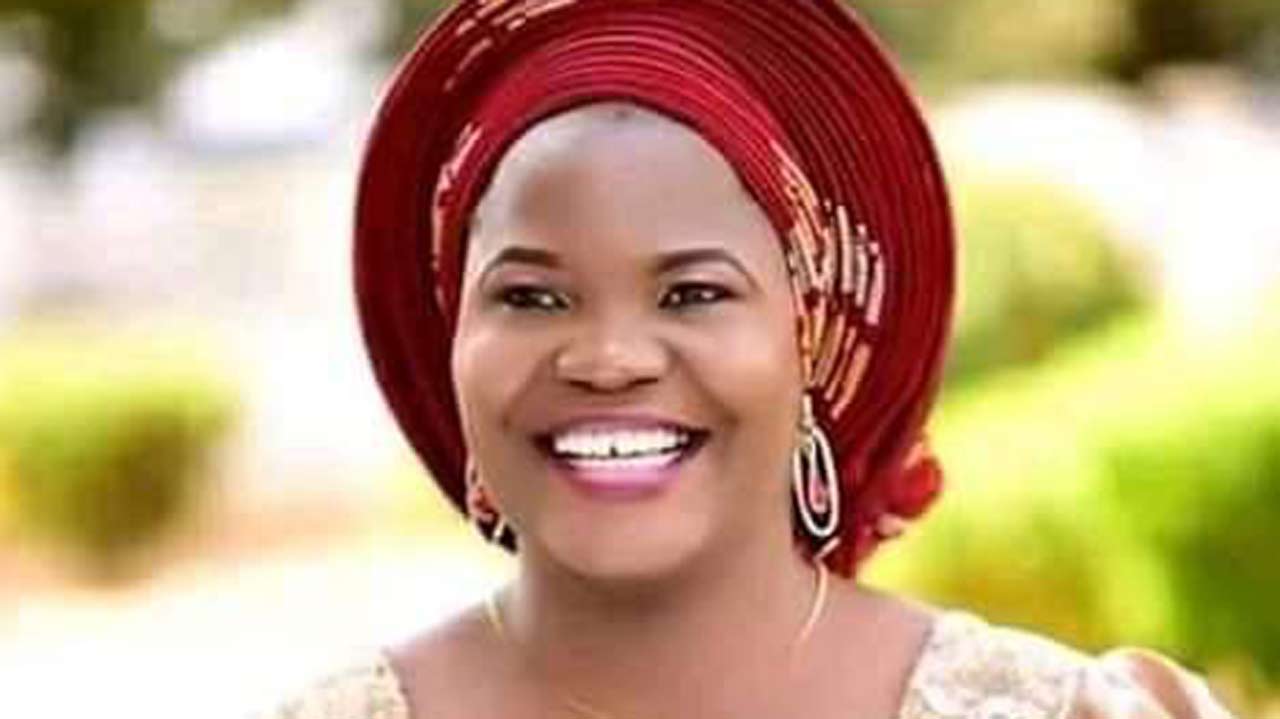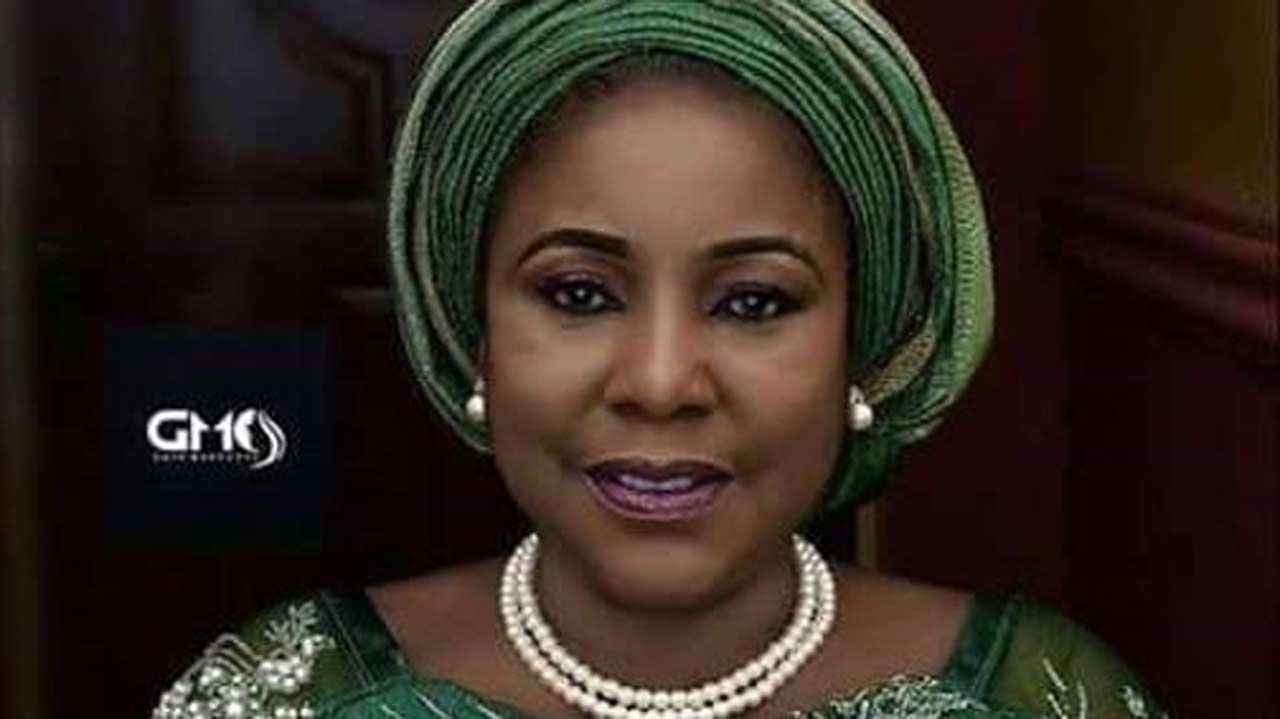
Since the advent of the current democratic dispensation in 1999, women have continued to hold the short end of the stick in terms of representation in political offices. While a lot has been said about how to shore up the numbers, it has ended in mere rhetoric. Rather than increasing, the number of female politicians in elective offices has continued to dwindle, which is a source of worry for political watchers, who decry the situation and the consequences for policy formulation and development.
Many reasons have been adduced for the decreasing number of women in elective positions, particularly in states’ Houses of Assembly. They range from finance, cultural and religious beliefs that tend to keep women down. A close look at the 36 states Houses of Assembly shows a worrying lack of quality women representation.
A federal lawmaker and one of the few that made it to the lower chamber of the National Assembly, Hon. Beni Lar (representing Langtang North and South, Plateau State), put the plight of women in politics succinctly when she said; “Women have the population, but the men have the resources and men have what it takes and they don’t allow us space. The challenge is the traditional notion and the barriers of financial challenges.
“Most women are not financially equipped to run and sustain the momentum in the political terrain, which is very tough and rough because you have to fight to get there in terms of earning your own space. You have to spend some resources in mobilising people, and you also have to gain the confidence of the community.”
But her experience while in Egypt was eye-opening, according to her, as Egyptian men told her they were ready to concede more political power to women for a better society. That is why Hon. Lar has been passionately pushing for the ‘Gender and Equal Opportunity Bill’, which has faced an uphill task, as she tries to convince her male counterparts to support.
According to her, the bill “will give women equal chances. This will go a long way, because if we make it mandatory for political parties to reserve at least 30 per cent slots for women, we will make significant progress.”
At a workshop recently organised on how to improve female participation in democracy in the Southeast, an activist, Mrs. Ngozi Odumegwu, had emphasised the need for more political space for women. She had lamented that even with the 35 per cent affirmative action generally agreed to enhance political participation, leaders of the Southeast zone have grossly neglected it.
To improve women participation and change the trend, she called for early sensitization that could make women deploy their numbers to canvass and raise the bar. Odumegu also suggested a deliberate policy by political parties that could make them reserve seats for women, as well as offer free tickets and sponsorship to enhance women participation both in the Southeast zone and across the country.
IN the 40-member strong Lagos State House of Assembly, there are only three women lawmakers, a gross imbalance in terms of representation. They are Hon. Mojisola Lasbat Meranda (representing Apapa Constituency 1), Hon. Sangodara Rotimi (representing Surulere Constituency 1) while Hon. Mojisola Kehinde Alli-Macaulay (represents Amuwo Odofin Constituency).

In Ondo State, only one female lawmaker, Hon. Semilore Favour Tomomewo (representing Ilaje Constituency 2) sits in the male-dominated House. In Kogi State, there is no female representation at all, whether in the state Assembly or at the two chambers of the National Assembly in Abuja.
In Oyo State, Hon. Wumi Bimbo Oladeji (representing Ogbomoso North Constituency) is the only female lawmaker in the male-dominated Assembly.
Ekiti State seems fairly friendly to women in terms of political representation. While the state has two federal lawmakers in Senator Biodun Olujimi (Ekiti South) and Hon. Wumi Ogunlola (Ekiti Central Constituency 2), the state has four female lawmakers in the Assembly. They are Hon. Yemi Ayokunle (Ekiti South west), Hon. Princess Teju Okuyiga (Gbonyin), Hon. Bunmi Adelugba (Emure), and Hon. Kemi Balogun (representing Ado 2).
Ogun State also has four female lawmakers. They are Sikirat Ajibola (representing Ipokia Constituency), Bolanle Ajayi (Yewa South Constituency), Atinuke Bello (Odogbolu) and Modupe Mujota (Abeokuta North Constituency).
IN the Southeast, there are 129 state Assembly seats in the five states. Figures obtained by The Guardian indicate an abysmal presence of female lawmakers in the state Assemblies in the zone. Of the figure, only 10 of the seats are occupied by female lawmakers as against the 119 by their male counterparts.
A breakdown of the figure shows that of the 24 Assembly seats in Enugu State, only four are occupied by female lawmakers while 20 are occupied by their male counterparts. A further investigation into the situation in Enugu shows that only three seats were won by women at the conclusion of the 2019 general elections. The fourth occupant came on board a few weeks ago, after the original occupant, Chijioke Ugwueze (Isiuzo constituency) died and a bye-election conducted by the Independent National Electoral Commission (INEC) led to the emergence of his wife, Amaka Ugwueze.
The other female occupants in the Enugu State House of Assembly are Hon. Onyinye Ugwu (Enugu South rural), who of course is the deputy leader of the House. She also heads the Committee on Gender Affairs and Social Welfare, Hon. Jane Eneh (Awgu North), who is the Chief Whip of the House and Deputy Chief Whip, Hon. Ethel Oyibo Ugwuanyi.
Before his death, Chijioke Ugwueze headed the House Committee on Transport, Intergovernmental and Housing Services. It is not clear whether his successor and wife would also chair the committee. Even with the low female representation, Enugu still leads other states in the Southeast zone, as it has more female lawmakers. All the lawmakers were elected on the platform of the Peoples Democratic Party (PDP).
In Imo State, despite the number of political parties that produced lawmakers that make up the 27-member state House of Assembly, the two women that emerged from the election came from the Action Alliance (AA).
They are Hon. Jovita Uju Onwudiwe, who represents Njaba State Constituency and Hon. Obiefula Ngozi, who represents Isu State Constituency. The other 25 seats are occupied by their male counterparts, who also head the various sub-committees in the Assembly. Sources told The Guardian that the two female lawmakers hardly make any contributions in the lawmaking process, apparently because of the domineering presence of their male counterparts.
It was gathered that the female lawmakers’ situation was compounded in June this year, after one of them, Hon. Uju Onwudiwe, survived an attack from the member representing Ahiazu Mbaise, Hon. Samuel Otuibe. Onwudiwe was allegedly attacked during a meeting to resolve lingering issues in the House. Otuibe was said to have attacked her with a bottle of wine and wine glass following a heated argument.
Hon. Chiji Collins was Speaker of Imo State House of Assembly when the female lawmaker was attack. The ugly incident took place at an emergency meeting of the lawmakers at the official quarters of the Deputy Speaker, Amara Iwuanyanwu, in Owerri, to discuss non-payment of salaries of the lawmakers and their aides, among others.
Trouble allegedly started when Otuibe tried to silence another female lawmaker Ngozi Obiefula, who was addressing the lawmakers. Uju Onwudiwe insisted that Obiefule should be allowed to make her case, since she still had the floor, which resulted in both lawmakers exchanging words at which point Otuibe threw the bottle of wine and glass cup at her.

The bottle was said to have smashed the wall and injured the representative of Ohaji/Egbema Constituency, Heclus Okoro, on his finger. Onwudiwe, who confirmed the attack, said it was only through God’s grace that she dodged the bottle from hitting her on the head and possibly killing her.
The House had then set up a committee headed by Chairman on Information and Judiciary, Dominic Ezeiroha, to handle the matter and report to the House for further action. Apparently, nothing came out of the incident under Speaker Collins’ watch.
In Ebonyi State, there are three female lawmakers currently in the 24-member House of Assembly. They are Hon. Franca Okpo (Abakaliki North), Hon. Lilian Nwachukwu (Ohaozara East), and Hon. Lilian Ngozi Eziuloh (Afikpo North). The women, as it happens elsewhere, are hardly heard during and after debates on the floor of the House.
But the former Ebonyi female lawmaker, Hon. Maria Ude-Nwachi, who won election to the House from the relatively unknown Peoples Progressive Alliance (PPA) became so popular among her colleagues by her outspokenness and accessibility to the people. That development soon landed her in trouble, as other members who were not comfortable with her popularity allegedly conspired to push for her suspension.
She served out her suspension and returned to the House in spite of the opposition she faced. She decided to contest the House of Representatives election for Afikpo North/South Federal Constituency. She eventually lost to the current occupant, Hon. Idu Igariwey of the Peoples Democratic Party (PDP).
When contacted on her experiences as a lawmaker working in a state Assembly saturated with males, Ude-Nwachi simply said: “It is not an experience for me to start discussing now. Truth is that, it is something I will like to talk about but not at the moment. It is sad though.”
All Ebonyi lawmakers were elected on the platform of the PDP at the conclusion of the 2019 general elections, but with the recent defection of Governor Dave Umahi to the All Progressives Congress (APC), all the lawmakers followed suit.
In Anambra state, Hon. Beverly Nkemdiche Ikpeazu of the All Progressives Grand Alliance (APGA) is the only female lawmaker in the state House of Assembly. She represents Onitsha South 2. Though described as a strong character, it has not been easy for her to push through in the 30-member male-dominated House of Assembly.
The case of Abia State may rank the worst in the zone. Currently, there is no female lawmaker in the 24-member State House of Assembly, making it an all-male affair.
A female lawmaker in the Southeast zone, who spoke to The Guardian on condition of anonymity, stated that it had not been easy pushing through with the dominance of male folks in her state Assembly.
According to her, “They will want you to respect their opinion. They do their meeting and conclude before informing you. Even if it is your duty to summon them for a meeting at times, you discover that you have to do that based on their terms because they are in the majority.”
The female lawmaker lamented that there had been little or no contribution from her in the development of rules in the zone, because “majority of us don’t have the capacity. Unlike the male, who through one way or the other can find their voices, most of us occupy the position by the mercy of the state chief executive.
“Whatever we do must have their approval, not minding the feelings of the people you are representing. When they attend late meetings, we don’t join them. Even when you join them, there is a limit to which you can do or say things. We have a culture in Igboland that respects the man, no matter his age, and when you realise that there are certain things you cannot do, you try to do the lawmaking business in such a way as not to injure those beliefs in our system.”
WHILE there is just a handful of female lawmakers in the south, the north presents a different proposition entirely. In Plateau State, only one female lawmaker sits in the House of Assembly. She is Hon. Esther Simi Dusu, who represents Jos Northwest on the platform of the Peoples Democratic Party (PDP). Plateau also has a female House of Representatives member in Hon. Lar, while recently, Prof. Nora Dadu’ut (APC), was elected in the Plateau South Senatorial bye-election.

In the Northwest states, the story is worse, as there is paucity female lawmakers in state of Assemblies, a development many observers blame for the slow progress of women and children’s rights. The lack of women participation in the enactment of laws affecting children and women in the Houses of Assembly in the Northwest has continued to worsen women and children’s welfare.
In Northwest states of Kaduna, Kano, Katsina, Jigawa, Sokoto, Kebbi, and Zamfara, only one female legislator was sworn-in after the 2019 general elections, specifically into the Kaduna House of Assembly. The female legislator, Hon. Comfort Amwe, who was the Chairman of Sanga Local Government Area, is the only female lawmaker in the 34-member House.
The President of Arewa Youths for Development and Progress (AYDP), Dajuma Sarki is full of praise for the Peoples Democratic Party (PDP) lawmaker, Amwe, for being the only female legislator measuring up with her male counterparts in the House.
Danjuma said, “the major issue that affects women election into the Houses of Assembly in the north is that of religion. People always see, according to Islamic religion, that it is a taboo for women to lead men in political office.
“So, they discourage women from contesting in elections. Even when they contest, they will discourage people from voting for them and they will quote some Quranic verses that disqualify women. Also, in this part of the country, they see women as subordinates and that they are just meant to be housewives and to keep the homes.”
According to the youth leader, “Not having women in the legislative houses is a major bane to good and proper legislation on issues that affect children and women generally, especially when you take into consideration issues of child rights or child abuse. You would find out that lack of legislative inputs from women have really retarded the enactment of laws affecting children and women.”
For example, he stated that “the issues of almajirai and child trafficking in the north continue to thrive because women, who know where the shoe pinches, do not have the opportunity to contribute in making laws in the Houses of Assembly, because of their absence or insufficient numbers to address these problems.”
Hon. Amwe said it was unfortunate that too few women are in the Houses of Assembly in the region, saying it does not speak well for lawmaking that should favour issues affecting women and children.
“No, it is not good at all,” she said. “You see, two good heads are better than one. If we were two, I may want to share either an idea or something with my colleague. And don’t forget, there are some things that are better shared with a fellow woman than with a man. The man may just make jest of you.
“So, being the only female, each time I turn around and I don’t see another woman with me, it bothers me. It is disheartening, but we must do our work. I’m not happy and I can tell you that. So, I pray something better will come up with my fellow women in 2023 if God spares our lives.”
Amwe urged women politicians to brace up in contesting elective offices in the country, particularly in the North for the growth and development of women and child rights.
According to her: “We are ready to mentor women. They should come over. I’m ready and I know some women who have made it are out there to help them out. For those that want to contest, either for the state or
national elections in 2023, they should start now. This is the right time to start. If they start earlier, it will be cheaper than gatecrashing when elections are close. You should know you have a lot of things to approach, including time and resources. So, if they start now, it will give them an insight. They will be able to measure their progress towards their target.”
The lawmaker further spoke on the level of women participation in politics in Kaduna State, saying, “to be candid and honest with you on this, the present governor of Kaduna State, Malam Nasir el-Rufai is gender-sensitive and I am so happy with him. This is because, in the history of Kaduna State, we have never had four female commissioners at a stretch. And you will agree with me that ordinarily, no woman would have thought that she could become a deputy governor in the entire Northern states.
“For our governor to choose a woman as his deputy, he has done so much for us. Nobody is talking of party barrier. A woman is a woman, whether in APGA, PDP, APC or SDP or any other political party, as long as she is a woman and she’s there for all of us. We know that a woman is a mother, who has passion for her husband, children, family and everybody.
“So, if she’s given a substantial role to play in the affairs of things, whether at local, state or national levels, you are building a nation and that is what we are seeing in the state. So, if only the women who have either been elected or appointed into power will be on their toes, Kaduna State will really change because women are there.”



